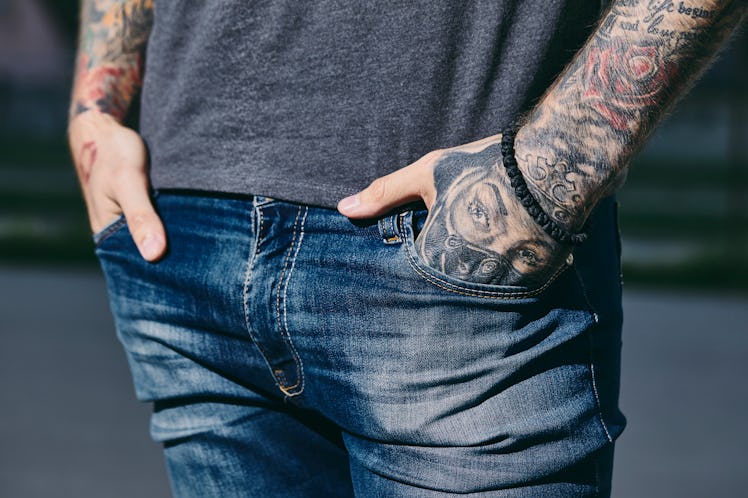Why Do Humans Have Pubic Hair?
Scientists aren't sure why people have pubic hair, but they're pretty sure it's not just for decoration.

Scientists are still not sure why humans have pubic hair, but it likely serves a purpose beyond decorating our private parts. Perhaps humans inherited pubic hair from primates. Or maybe it’s a sign of sexual maturity, signaling readiness to procreate. Here’s what the research says about why pubic hair exists.
You’re Basically A Gorilla. Embrace It.
Gorillas have pubic hair, too. Despite the fact that great apes’ bodies are entirely covered in coarse hair, their pubic hair distinct—finer and shorter, by comparison. And that’s not the only thing human and ape pubes have in common. There’s evidence that humans inherited genital lice from the gorilla louse. Taken together, these observations suggest that pubic hair serves a unique purpose in both apes and humans. But what that purpose may be remains elusive.
Pubic Hair May Signal Sexual Maturity
Perhaps in both apes and humans, pubic hair exists to signal that a person sexually mature and ready to mate (and here we’re blaming the creepy “grass on the field, play ball” witticism on frat boys, not science geeks). It makes sense. Pubic hair does indicate what our hormones are up to, and doctors investigate underlying hormonal issues in kids who display pubic hair too early in life.
Pubic Hair Blocks Odors And Replaces Them With Sexy Pheromones
Other experts suggest that pubic hair serves to trap unpleasant genital odors and release stimulating pheromones. “The hair traps the smell,” Michael Cackovic, an OBGYN at Ohio State University, told SELF. “What you can smell is bacteria mixing with the sweat and oil.” While this may sound like a compelling case for the benefits of letting pubes return to their bushy 1970s roots, it is important to note that scientists cannot even agree on whether humans have pheromones. So there’s no guarantee that keeping your hedge untrimmed will do you any favors.
Life Without Pubic Hair Means More STDs
Even if your pubes don’t have odor blocking powers, studies suggest you might not want to get rid of them. The removal of pubic hair is associated with an increase risk for herpes, syphilis and HPV, according to a recent study. Researchers found that removing your pubes even once during your lifetime may double the risk of contracting at least one STD. High frequency groomers (more than 11 times per year) quadrupled their risk. Now, that may mean there’s something protective about pubes. But it may also mean that the sort of people who take a lot of time to groom their pubic hair are more sexually active and have multiple partners. Either way, points for pubes.
You’re Just Going to Hurt Yourself If You Shave Your Pubes
Of the 76% of people who reported grooming their pubic hair, about a quarter of them admit that they’ve suffered accidental injuries in the least accommodating of places. Some even required medical attention, according to a recent study. People who wax are at lower risk, but they also rip their hair from their loins without remorse, so we suspect they’re a pain-tolerant bunch anyway.
So even though we don’t know why we have pubic hair, there’s reason to keep it in play. It my help with smell and reduce your risk of STDs. But most of all? Keeping your pubes means keeping sharp objects well clear of your genitals — a cause we can all get behind.
This article was originally published on